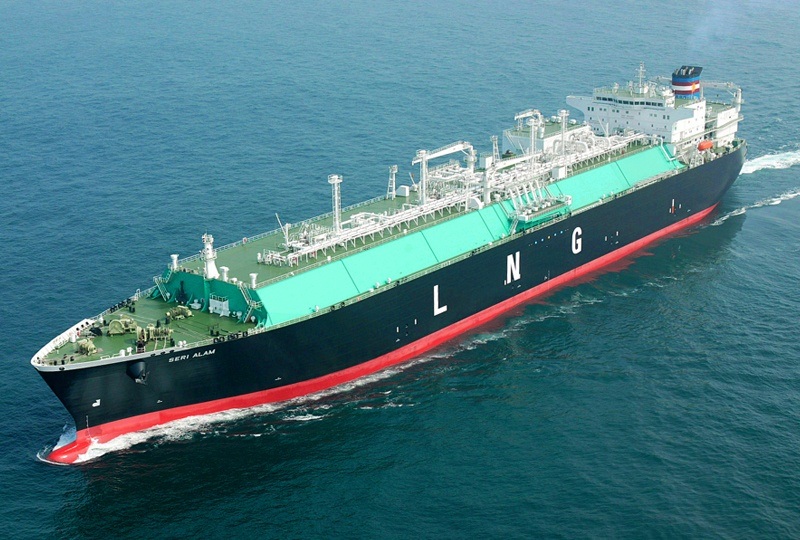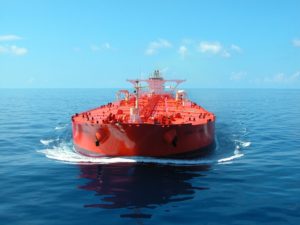Shipping players look to cut carbon emissions with ammonia-fuelled tanker project

A shipbuilder and engine maker are among leading companies looking to develop a vessel that can run on ammonia as part of efforts to speed up carbon reductions in shipping through cleaner fuel options, according to Reuters.
A new project aims to design an oil tanker that can be fuelled with ammonia and whose technology can be adapted to other types of ships.
The project brings together engine maker MAN Energy Solutions, shipbuilder Samsung Heavy Industries, ship classification society Lloyd’s Register, and maritime energy services company MISC Berhad.
International shipping accounts for 2.2% of global carbon dioxide emissions, according to the International Maritime Organisation (IMO), more than aviation’s 2% share.
Investor and activist pressure is prompting companies to look to step up ways to reduce the industry’s carbon footprint.
High costs and potential safety issues have meant that future fuels such as ammonia have been slow to advance.
“MAN are working hard to make the engine ready for ships to be delivered from 2024. This suggests a best case scenario of full design work completed such that a commercial ship building contract could be placed in 2022 for delivery in 2024,” says Marine & Offshore Director at Lloyd’s Register Nick Brown.
“But delays may be experienced especially if the fuel supply industry does not provide more assurance that new fuels will be available and at what price.”
Shipping companies are exploring solutions ranging from using high-quality paint to working on infrastructure to enable zero-carbon ships to be on the water by 2030.

Image courtesy of MISC: Eagle Virginia (petroleum shipping)
The creation of the alliance has been motivated by the partners’ shared belief that the maritime industry needs leadership and greater collaboration if shipping is to meet the International Maritime Organisation’s 2050 Greenhouse Gas (GHG) emission target, an ambition that requires commercially viable deep-sea Zero-Emission Vessels (ZEVs) are in operation by 2030.
Ammonia is just one of the pathways towards zero-carbon emitting vessels. The partners recognise that the shipping industry will need to explore multiple decarbonisation pathways and hope their collaboration will spur others in the maritime industry to join forces on addressing this global challenge.
The partners believe that the creation of such alliances will send a clear message that shipping can progress itself to fit times and circumstances, ahead of regulatory action.
The drive to decarbonise shipping will be a dominant focus of the decade ahead and follows a year of action in 2019 that saw the launch of Getting to Zero Coalition, an alliance of maritime, energy, infrastructure and finance companies committed to getting commercially viable deep-sea ZEVs powered by zero emission energy resources into operation by 2030.
“We are very delighted to be a key member of this meaningful industry collaboration together with competent partners. We all know that the industry-wide movement is vital, and new zero-carbon fuel technologies, such as ammonia fuel, are to be brought on the table, in order to take action proactively on maritime GHG emissions in accordance with the IMO’s ambitious road map,” says Joon Ou Nam, President & CEO of Samsung Heavy Industries. “We hope SHI’s experience and expertise in novel ship design development will effectively contribute to this joint development project and all JDP partners could get better insight into the feasible and sustainable zero-carbon fuel vessel design solutions.”
“Joining this project makes perfect sense for MAN Energy Solutions as system technologies that help our customers to reduce emissions and lead the way to a carbon-neutral future form a significant part of our business strategy,” says Bjarne Foldager Jensen, Senior Vice President, Head of Two Stroke Business at MAN. “Low-speed diesel engines are the most efficient propulsion system for trans-oceanic shipping and already run on a sizeable number of emission-friendly fuels. We look forward to adding ammonia to the list and welcome the opportunity to work with industry partners in this venture.”










